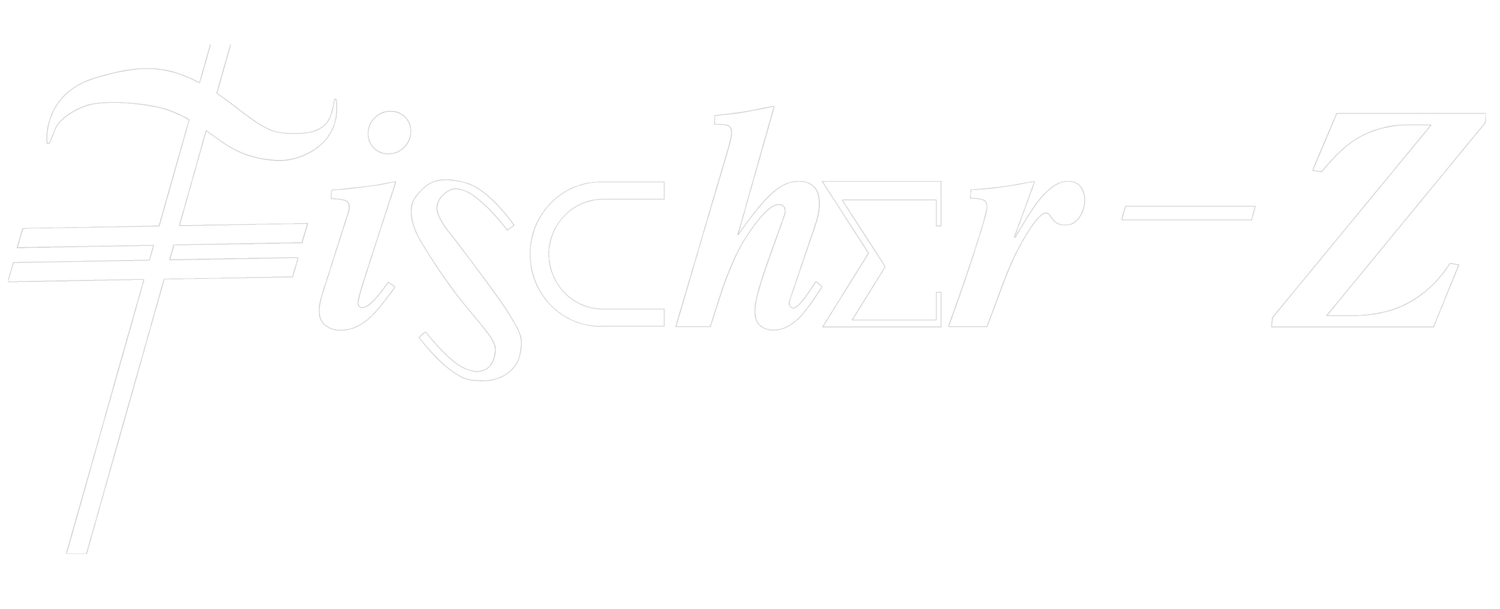John Watts entered pop music after studying to be a clinical psychologist
in the 1970s at an experimental facility that didn't use any drugs or restraints.
“I’d be doing a shift there from 8-4pm and then get in a van and go to do a gig
in Derby, or somewhere. I’m not aggressive naturally, but, you know, I’d literally
dealt with psychopaths all day, so I wasn’t afraid of the punk crowds. During the
daytime, you’d be taking someone to hospital who’s cut themselves open with a
broken bottle, you’re holding their stomach together hospital and then in the
evening you go out and play to some snotty little 17 year olds who threaten to
put a cigarette out on your leg and you think, ‘Well, come on then!’” Which all
helped Fischer Z gain a reputation for a confrontational style of performance.
They were also recognised as a white band that could really play reggae.
They got very busy and toured with Dire Straits and played festivals with Bob Marley.
When the hits started to come - third album Red Skies Over Paradise was shifting
30,000 copies a week in Germany in 1981 - the band concentrated on their most
successful territories. Their inexperienced management pushed them through
almost five years of relentless recording and touring, after which Watts, who
was responsible for all the material, interviews and artistic guidance, was
completely burnt out. “I should have just taken six months off but I hit the
self-destruct button and declared I was now a solo act.” Having torpedoed the
brand name, Watts was fated to focus on where he was best known, though he’s
always lived in Britain and raised children here. Over decades the band has continued
touring in Europe, but John has also crafted a solo mode that mixes social
commentary, poetry and his sharp songwriting into an impressive and wide-ranging
two hour theatre show format. The demand for Fischer-Z has never gone away.
These days Watts straddles parallel careers, as the front man of Fischer-Z - under
which banner he releases all his new music - and as Fischer-Z Solo, lone guitar-toting
wordsmith and polemicist.
A recent on-rush of inspiration has coincided with Watts deciding to shift focus to see
if he can make a bigger impact back home. “I find it absolutely frustrating not to be able
to work as much as I’d like in Britain, in fact in all the English-speaking countries. I
absolutely love this new project, PUNKT!, but it's just one brick in a huge wall. I'd like
people in Britain, Australia and America to know that I've built that wall. I'm 70, but I
intend to produce work in the coming years that’s as good as anything I've ever done.
I want to keep the standard high, visit places I’ve never been before, and show people
what I can do.”
2025 is the year of PUNKT! ‘It is not just music; it includes a collection of 10 artworks
and a short film. The music will initially be released as series of limited edition bespoke
vinyl records. At a time when creatives are expressing great concern about the threat of
AI to their art and their livelihoods, John is keen to emphasise the value of music and art
by adopting an ‘“art’ model to create a limited number of bespoke vinyl record artefacts.’
2026 is a big one for Fischer-Z. 50 years since the band was formed at Brunel university. To celebrate, the band will play an extensive world-wide anniversary tour in Spring and Autumn 2026. In terms of releases there will be both a new album and retrospective package to honour John’s career so far.

